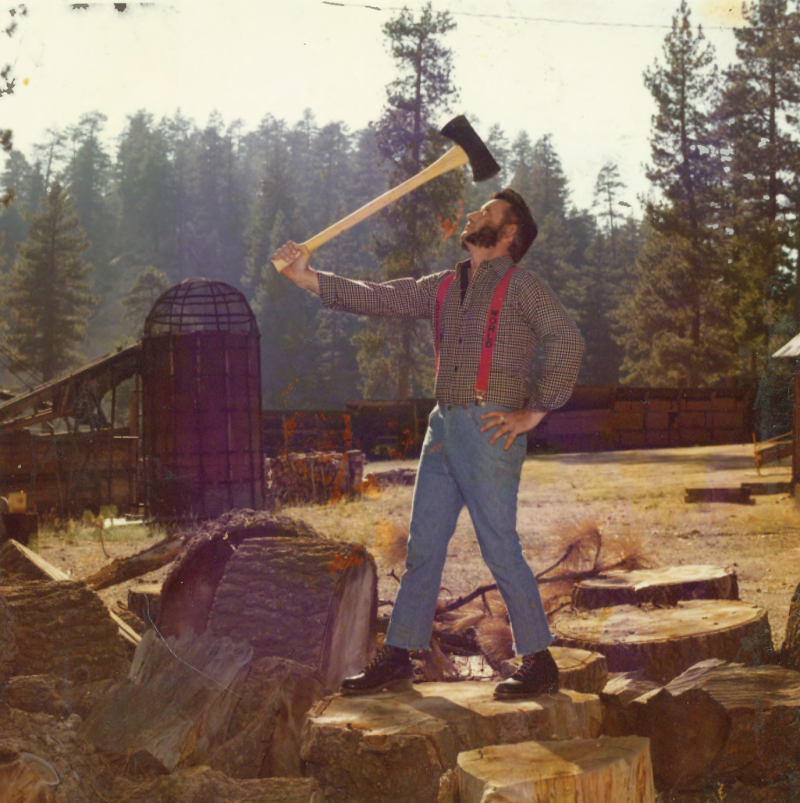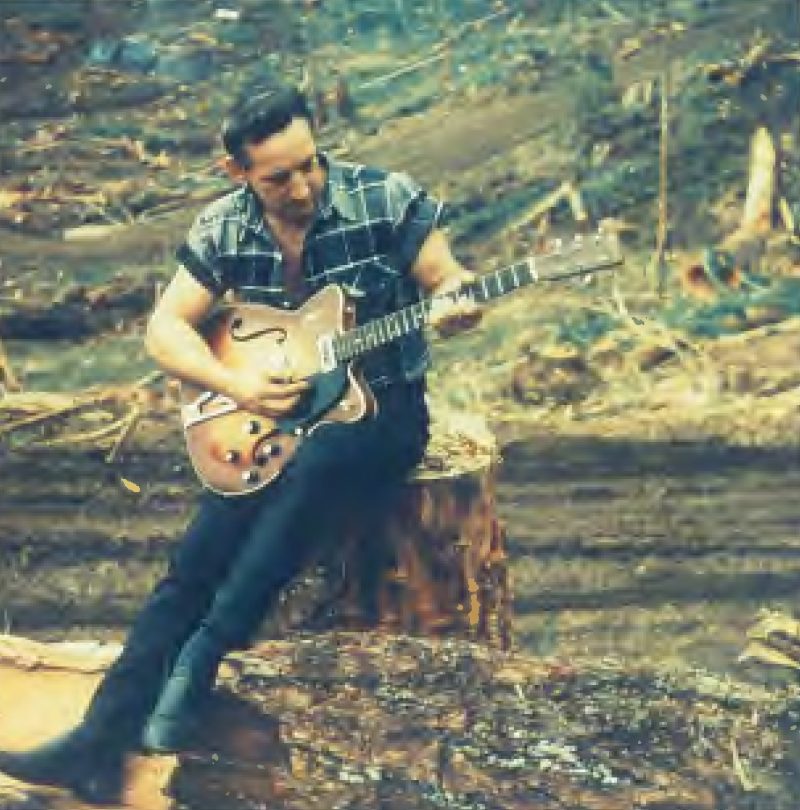In photographs, everything about Buzz Martin looks unnaturally large: big nose, big forehead, big lamb-chop sideburns that draw attention away from the big ears behind them. “The Singing Logger” was seldom photographed without an ax or a guitar, probably because his lumpy hands hung awkwardly without something to hold. He wore his flannel shirtsleeves rolled up near his shoulders to reveal formidable white biceps offset by tan, leathery forearms that once measured seventeen inches around—the same size as Andre the Giant’s. His top three shirt buttons never seemed to find their loopholes. It’s hard to tell, from the old album covers and family photos, whether the deep lines on Martin’s face were wrinkles or scars. In the declining years of the timber industry, in the logging camps of the Pacific Northwest, Buzz Martin’s legend grew to Paul Bunyan proportions; he was a larger-than-life symbol of the logging world’s values, its resilience, and its screwball humor.
For about a decade, beginning in the late ’60s, the Singing Logger found enough success as a minor country-music star to hang up his lumberjack’s cork boots and tour bars, logging camps, and music festivals across the country. In his brief career, Martin wrote what would become nearly the entire canon of modern logging music. On his six albums—all released between the mid-’60s and early ’70s—he wrote forty-four original songs; nearly two-thirds are about logging.

Singing about blue-collar work has always been a rite of passage for country singers, but in the middle of the last century, a notable group of songwriters made their careers producing songs about a single occupation. Marty Robbins was a suburban kid turned racecar driver who made it big performing songs about gunslingers and cattle ranchers. Red Sovine, a former hosiery factory supervisor, found fame singing intensely melodramatic songs about the lives of long-haul truckers. But unlike many of his peers in the often-superficial and showy genre we’ll call “occupational country,” Buzz Martin was a direct product of the world he sang about. He approached his subject with a keen eye for detail. Martin preferred emotional realism to melodrama, and if his songs glorified the logger as a hero, just as often they painted a punishingly bleak portrait of the job. He wrote from the perspective of a keenly self-aware insider, resulting in a discography—most of which has been out of print since the ’70s—that provides a rare glimpse into a famously closed and protective segment of blue-collar America. Buzz Martin didn’t just document logging culture, he narrated the slow death of the Northwest’s biggest industry and the broken people it took down with it. Then, after a brief bout...
You have reached your article limit
Sign up for a digital subscription and continue reading all new issues, plus our entire archives, for just $1.50/month.
Already a subscriber? Sign in





